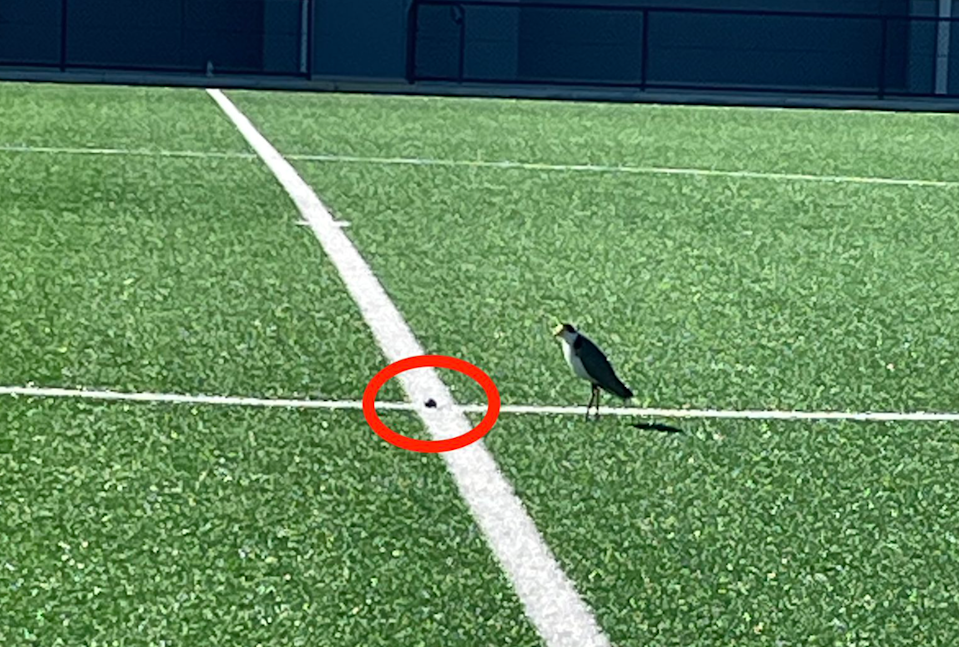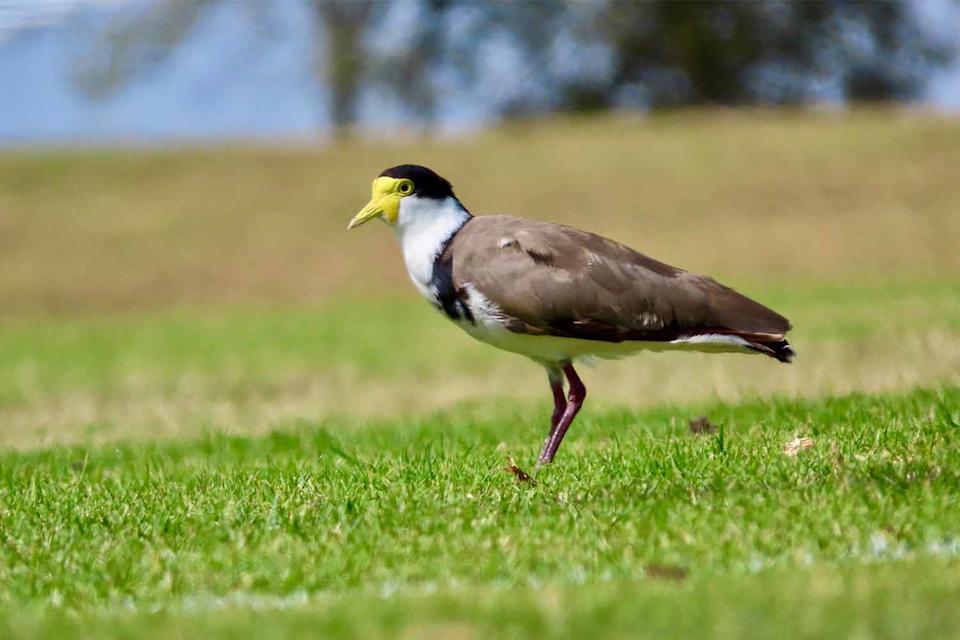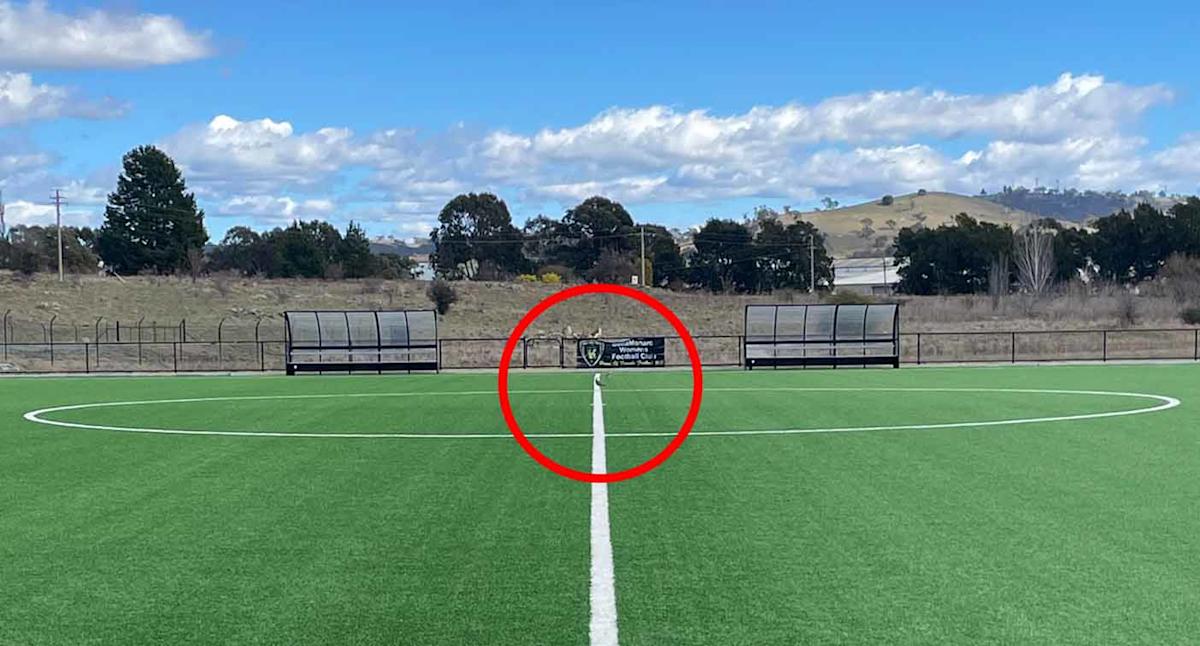Saturday soccer in a regional Australian town was brought to a standstill on the weekend after a tiny and precious discovery was made in the middle of the playing field.
Local players who turned up to have a kick at Jerrabomberra Regional Sports Complex, 20 minutes away from Canberra, were told they’d be required to play on a different pitch after a protected native bird had laid an egg in the middle of the field, right on the halfway line in the centre circle.
“A plover laid an egg on the synthetic football field at the Regional Sports Complex,” a spokesperson from Queanbeyan-Palerang Regional Council told Yahoo News Australia. “After advice from the local native wildlife service, Wildcare, the sporting club moved the games from the field and used an adjacent field.”

The weather was great, but this was not your normal disruption to play. Source: Facebook/Tim the Yowie Man
Wildcare advised council that plovers are a protected species and the eggs “should not be moved”, leaving council to investigate options for the field, which could be shut for up to 28 days as the egg incubates.
“We must be proactive in protecting native species. If moving the egg is necessary, Council will need to engage specialists and seek the required permissions,” Council said. “We are very appreciative of the local football teams for moving their games and training, and we are accommodating their needs on other fields.”
A spokesperson from Wildcare Queanbeyan told Yahoo that while eggs may hatch in around 28 days, a family of plovers are known to stay in the area of nesting sites after chicks are hatched, making it difficult to know when the field will reopen.
“The nesting sites of Plovers should not be tampered with, as the parents will abandon their chicks if they are moved or interfered with. This is why it is important for sporting events to be moved to a more suitable location,” the spokesperson said.
Plovers known for ‘inappropriate’ nests
As the weather warms up, wildlife activity will continue to rise — with a NSW council issuing a warning for residents to keep an eye out for a different “hard to spot” bird, the bush stone-curlew, which has also started nesting.
According to Birdlife Australia, Masked Lapwings, also known as plovers, are well known for building nests in “inappropriate” locations, with playing fields and the roofs of buildings being particular favourites. Both sexes also incubate the eggs and care for their young.

Playing fields or grassy parks are one of the lapwing’s favourite places to nest for a masked lapwing plover. Source: Getty
It’s not the first time that towns have been brought to a standstill due to plover activity, with an exclusion zone set around a popular beach when it was discovered a breeding pair of hooded plovers were seen nesting close to Australia’s world-famous Great Ocean Road.
Do you have a story tip? Email: newsroomau@yahoonews.com.
You can also follow us on Facebook, Instagram, TikTok, Twitter and YouTube.


